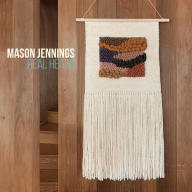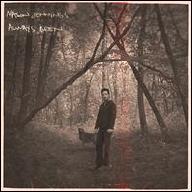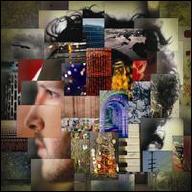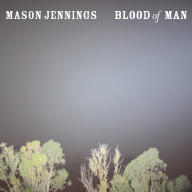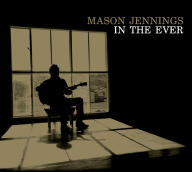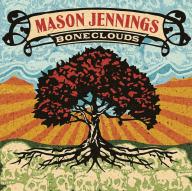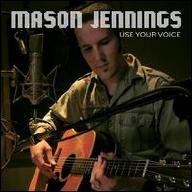Jennings was born in 1975 in Honolulu, Hawaii, but moved to Pittsburgh with his family shortly after. While still a young boy, his father moved to Minneapolis, Minnesota and sent his son a series of tapes featuring bands that were storming the then-fertile Twin Cities music scene. Inspired, Jennings picked up a guitar and starting writing songs by the age of 13. Three years later, he decided to pursue a career in music and promptly dropped out of school, opting instead to move to Minneapolis and work on his songs full-time. At 19, he'd already attracted the attention of a major booking agency and begun receiving offers from record companies, but Jennings was more interested in a situation that would offer him creative freedom, not a quick influx of cash. He soon retreated to his apartment and began working on his first album, which he recorded and scrapped four times before finally settling on a final track list.
Featuring just Jennings and his guitar, Mason Jennings was also produced and released solely by the artist himself. The album proved to be a potent calling card for him; it received significant airplay on local radio stations, and the songwriter began playing a Thursday night residency at Minneapolis' 400 Bar, which soon won him a potent local fan base. Before long, Jennings began gigging with bassist Robert Skoro and drummer Chris Stock, and the Mason Jennings Band began work on their namesake's second album when Jennings contracted mononucleosis and was forced to take six months off from performing and recording. Following his recovery, Jennings opted to scrap the set of live favorites he'd begun to record and instead cut a set of new (and often strongly political) numbers for his second album, Birds Flying Away. More gigging followed, but drummer Chris Stock was unable to reconcile the rigors of touring with his personal life and amicably left the group, with Brazilian jazz musician Edgar Oliveira taking over the percussionist's spot.
Jennings' continued roadwork added to the enthusiasm of his fans and the positive press he received for his first two albums. For his third release, 2002's Century Spring, Jennings founded his own label, Architect Records, and signed a distribution deal with established East Coast indie label Bar/None Records, which also issued Use Your Voice in 2004. The next year, Jennings became the first artist on Modest Mouse frontman Isaac Brock's Epic imprint, Glacial Pace, which then released Boneclouds in 2006. His relationship with Glacial Pace soured, however, and Jennings made yet another jump -- this time to Jack Johnson's Brushfire Records -- for the release of 2008's In the Ever. He remained with the label for Blood of Man, which was recorded in a woodside studio and released in 2009. In 2010, Jennings launched a new label, Stats Brackets, with his first concert album, Live at First Ave. Later that year, he issued The Flood, in which he recorded new versions of previously unrecorded songs, some dating back to the early '90s. In 2011, he delivered the studio album Minnesota, featuring the single "Witches Dream." In 2013, Jennings returned with the Bo Ramsey-produced Always Been. After the release of 2016's Wild Dark Metal, he put his musical career on hold as he dealt with personal issues, including anxiety, agoraphobia, sobriety, and a failing marriage. After committing to a healthier lifestyle and entering into a new relationship, Jennings recorded 2018's Songs from When We Met, which he described on his website as "a love record" and "a record about healing." ~ Mark Deming, Rovi


